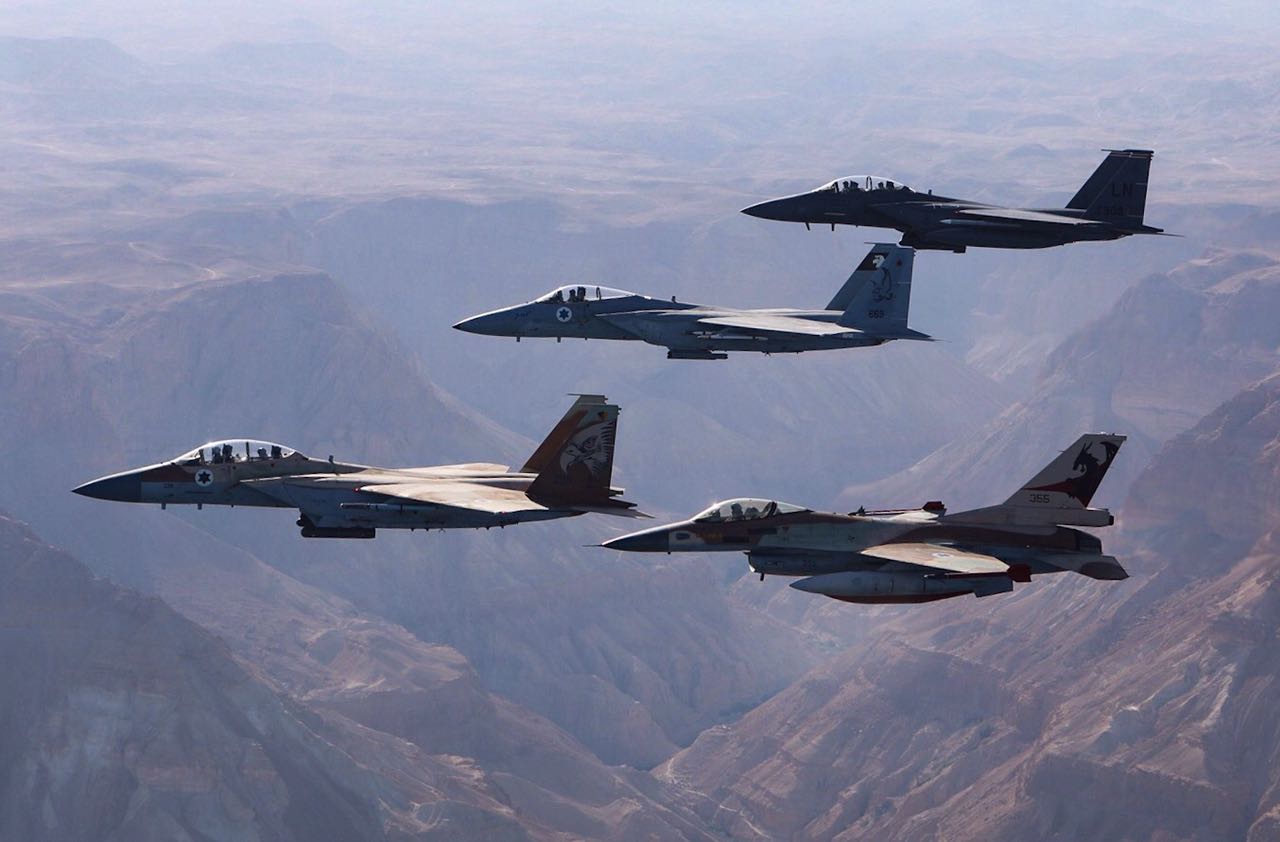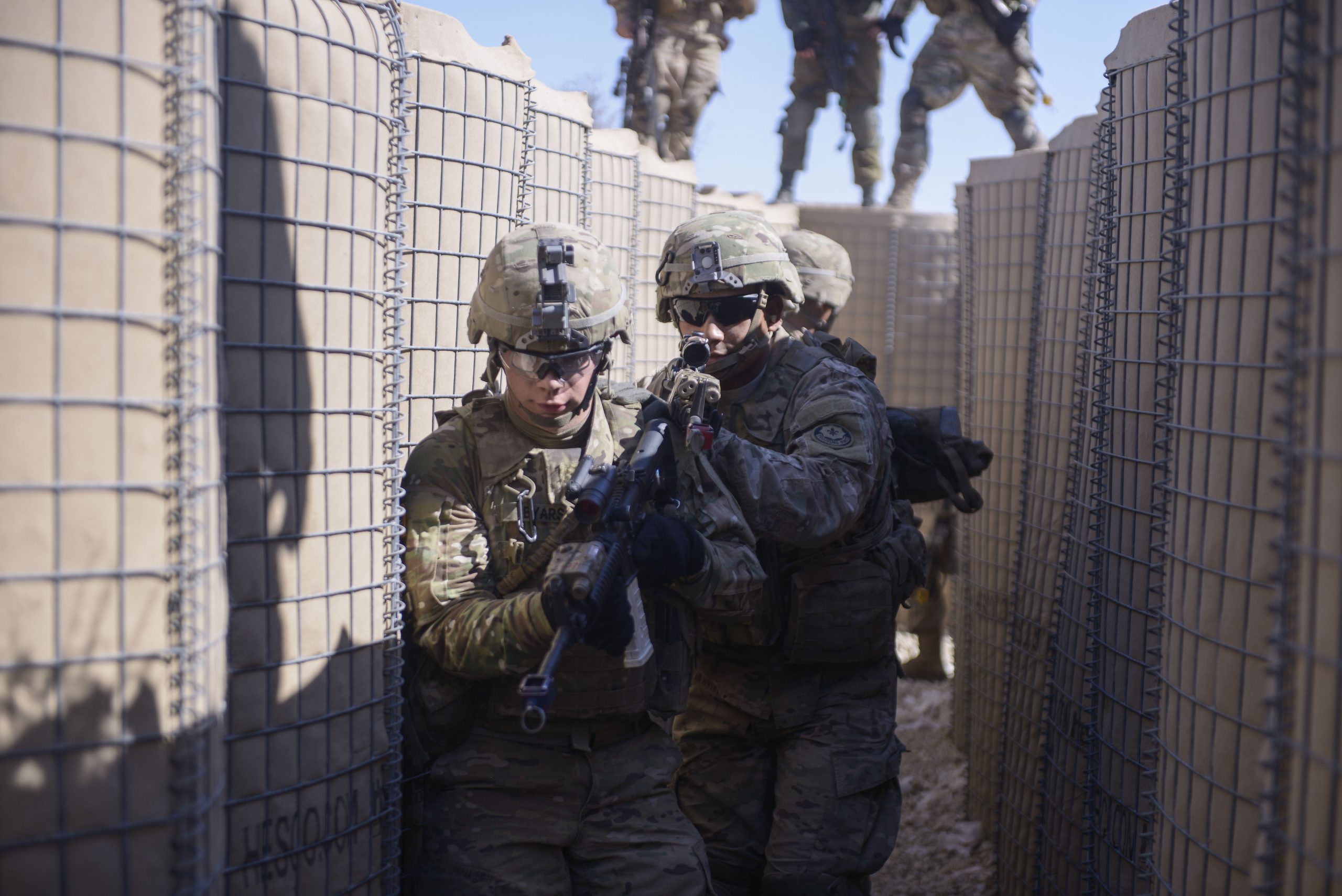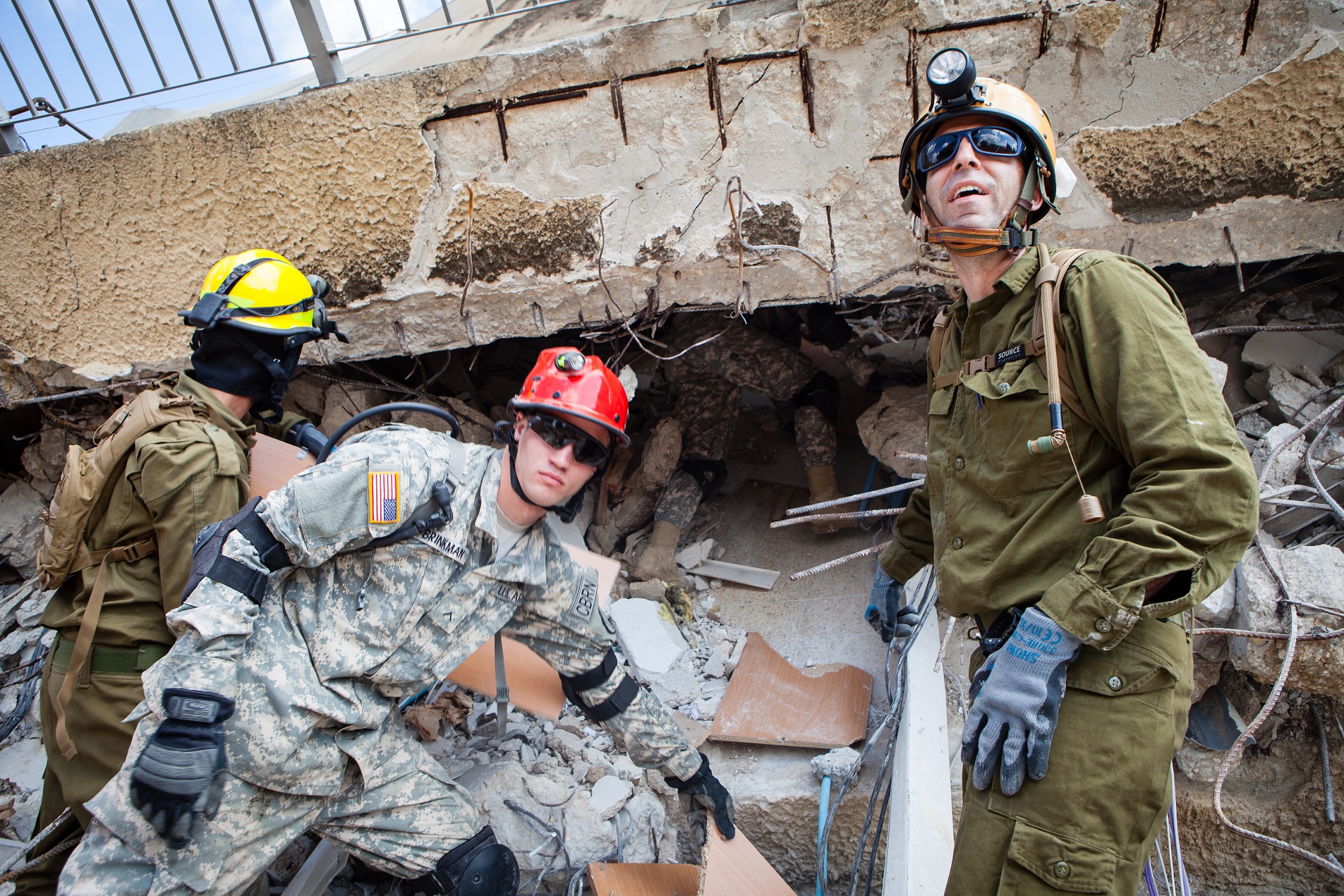by Assaf Orion, Udi Dekel
On the eve of a new administration in Washington, the Pentagon announced the transfer of Israel from the US European Command (EUCOM) to the Central Command (CENTCOM). Like the Abraham Accords, this decision brought to the surface deep, discreet, and longstanding relations between the parties, in this case the IDF and CENTCOM. It reflects a substantive change in the region, and will facilitate greater cooperation between Israel, the US, and other states in the Command. What significance is there to this development, and what are its implications?

On January 15, 2021, the Pentagon announced
a change in its 2020 United Command Plan (UCP), whereby Israel was
transferred from the US European Command (EUCOM) Area of Responsibility
(AOR) to the Central Command (CENTCOM). The decision was made in the
framework of the biannual DoD reassessment of the commands and their
boundaries against the operational environment, seeking to mitigate
risks and protect the interests of the United States and its partners.
The same day, the Wall Street Journal reported
that President Trump had recently ordered the Pentagon to transfer
Israel to CENTCOM, to spur Israeli-Arab cooperation against Iran: the
decision comes on the heels of the changes in Israel's relations with
countries the region, following decades of hostility toward it on the
part of many countries in CENTCOM's AOR. Like others,
the article bundled the decision with a series of actions taken by the
Trump administration in its final days in order to shape the Biden
administration's agenda. Given the violent riots in the Capitol, and
along with the barrage of last-minute decisions and orders, the
inclination to broadly tar all the outgoing administration's decisions
as political and negative is perhaps predictable. The transfer of Israel
to CENTCOM's AOR, however, justifies a broader, deeper, and more
professional assessment.
Indeed, the transfer of Israel to CENTCOM is not an irregular or unwarranted decision. Over the history of the UCP, many changes were introduced following strategic and technological developments that justified redrawing boundaries between regional commands or the creation of new ones, such as the Cyber and Space Commands. CENTCOM was established in 1983, following the 1979 Soviet invasion of Afghanistan, and perhaps also due to the Islamic Revolution in Iran. It was decided at the time not to add the “confrontation states of Israel, Syria, and Lebanon” to CENTCOM, to allow it to be "more effective and credible in dealing with other Arab and Muslim states," and these three countries were therefore left under the responsibility of EUCOM. In 2004, following the US invasions of Afghanistan and Iraq, President Bush approved the transfer of Syria and Lebanon to CENTCOM. Israel, along with the Palestinian Authority, remained under EUCOM responsibility. A change of command areas, therefore, is part of the Pentagon's routine, adapting organization to the strategic environment, and reflecting ripened recognition of such changes.

The regional commands are responsible for United States forces and relations with its partners in their areas. EUCOM, which currently focuses on Russia and its threats against Europe and NATO, is responsible for strategic and operational planning, operations, intelligence, logistics, training, technology and procurement, and coordination with US partners in Europe, including Israel. A prominent sphere in EUCOM's joint operations with the IDF is missile defense, in which they work together to plan, coordinate, exercise, and link their respective operational systems, sometimes also with selected NATO countries. Tens of thousands of IDF soldiers and US EUCOM troops have taken part over the years in joint missions in both peacetime and in contingencies.
Yet even in the
highly impressive realm of missile defense cooperation, gaps emerged in
the comprehensive response to threats. While EUCOM is responsible for
Israel's defense, the missile threats against Israel come from CENTCOM's
AOR: both the launching areas stretching from Iran to Lebanon and
Yemen, and the airspace in which Israel must act against them. CENTCOM
also has the relevant US intelligence and strike capabilities in the
region. Thus a comprehensive operational response to threats against
Israel requires combining the IDF's efforts with those of CENTCOM and
EUCOM, and with other strategic parts of the US defense establishment.
What has Changed?
According to the Pentagon, the Abraham Accords paved the way for the transfer of Israel to CENTCOM. In fact, however, like Israel's relations with the Gulf states, its relations with CENTCOM did not emerge overnight, or even recently. Rather, they come after years of quiet development and gradually higher profile. General Joseph Votel, who played a significant role in promoting CENTCOM-IDF relations, conducted the first official visit by a CENTCOM commander to Israel in April 2018. The current CENTCOM Commander, General Frank McKenzie, made a formal visit to Israel in November 2019, yet this was not his first time in Israel. Visits and meetings with CENTCOM commanders and their staffs have occurred since early in the last decade. In early 2016 it was reported that a tripartite dialogue channel existed between the IDF and the two commands (ICE: for IDF, CENTCOM, EUCOM), led by the IDF Deputy Chief of the General Staff. This channel began secretly a decade earlier, and has since continued with meetings of commanders and staff officers, mainly in Israel and in EUCOM headquarters in Germany.

Some assert
that when Israel attacked Iranian threats against it in Iraq and Syria,
CENTCOM benefited from plausible deniability because Israel belonged to
EUCOM, and that this deniability will now be lost. There are no serious
grounds, however, for asserting that the strategic, intelligence,
security, and military relations between the United States and Israel
can hide behind the boundaries of a command theater. The decade of
regional upheaval, the expanding Iranian influence in the region, the
war in Syria, and the rise of ISIS greatly increased the need for better
coordination between the IDF and CENTCOM, and for the sharing of
intelligence essential for their operations. Israel has conducted its
campaign between wars in the CENTCOM area for many years, and the level
of coordination between them is unquestionably much deeper than the
de-confliction updates between the IDF and the Russian forces in Syria.
The source of the tensions between Israel's activity and CENTCOM's
considerations does not stem from the Command's boundaries, but from the
trans-border operations of Iran and its proxies region-wide, and from
concerns that US forces in the region will be attacked in response to
Israeli activity, primarily in eastern Syria and Iraq, and also in Iran
itself.
Implications of the Move: Opportunities and Challenges
On the positive side, Israel's joining CENTCOM will simplify the existing coordination and cooperation with United States forces, and create potential for better integration in planning, preparation, and operations. In addition, the new configuration will help the United States promote a regional coalition with participation from Arab countries and Israel against the threats by Iran and Salafi-jihadi groups, and provide a platform for promoting security relations between US allies, as well as regional security arrangements under American sponsorship: early warning and intelligence, counter-terrorism, air defense, anti-missile defense, training, and stockpiles. This will also make it possible to gradually transfer some of the defense burden in the region from the United States to some of its partners. Under the CENTCOM umbrella, it will be more natural and easier for the IDF to maintain military contacts with parties in the region; obtain United States military support in communications with neighboring militaries, even when Israel still has no peaceful relations with their countries; and improve the regional response to common threats. One necessary step will be to station IDF liaison officers in the CENTCOM headquarters at the MacDill Air Force Base in Tampa, Florida, and in the future, possibly also in the Combined Air Operations Center in Qatar.

On
the challenges side, Israel assists EUCOM as a forward operational
branch for drawing operational lessons, and the latter seldom needs to
ease tensions between Israel and its other partners, except possibly
Turkey. In an emergency, Israel has EUCOM available and attentive to its
needs, including in deployment of missiles defense ships and batteries
and in munitions supply. With CENTCOM, however, Israel's emergencies are
usually part of crises in its wider AOR, and so Israel will have to
deal with a short blanket of resources, and to compete with the needs of
US forces and other partners in the region. EUCOM's experience and its
deep rooted relations with the IDF are a valuable asset for both sides.
In order to maximize the potential of Israel's transfer to CENTCOM, it
is important to retain its superb relations and work interfaces with
EUCOM, while institutionalizing its relations with CENTCOM. Israel
should prearrange an option for continuing to benefit from EUCOM's
advantages, including in future security crises, given its key role in
NATO. It will be wise to preserve the ICE channel, even after it has
fulfilled its historic role in promoting relations between the IDF and
CENTCOM under EUCOM sponsorship. Another open question is where the
Palestinian Authority fits into the Command areas.
An End and a Beginning
Militaries are organizations required to promote policy in their areas of responsibility. Policy usually strives to catch up with the rapidly changing reality, while the organizational structure lags far behind. The gaps between policy and organization and the emerging environment may be bridged with flexible processes, understanding that cross-border problems require out-of-boundary responses. Like Israel and the Gulf states, the IDF and the US Armed Forces have been able to identify at an early stage the challenges that they share and the essential partners for coping with them, and accordingly have worked together quietly. Just as the rich relations that were conducted discreetly for many years surfaced publicly with the Abraham Accords, the shift of Israel to CENTCOM constitutes the Pentagon's official recognition of this imperative for the sake of the interests and security of the United States and its allies in the region. After a wedding, however, comes marriage; the decision and declarations are only a first step. Israel and its partners in the United States and the region must wisely realize the potential of the new stage in their robust relationship, maximize its benefits, and navigate its constraints, for the benefit of all partners and their security.
Assaf Orion, Senior Research Fellow, Director of Israel-China research program
Udi Dekel, managing director of INSS
Source: https://www.inss.org.il/publication/centcom
Follow Middle East and Terrorism on Twitter
No comments:
Post a Comment